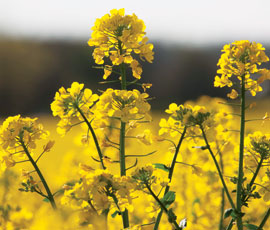Biofuel plans could cut rape crop by two-thirds

EU biofuel proposals published on Wednesday (17 October) could slash the community’s oilseed rape acreage by more than two-thirds, warns EU farmer and co-op body COPA-COGECA.
The proposals, which favour the use of non-food crops in biofuel production, are described by the NFU as a dangerous U-turn in policy.
“We have severe concerns about the introduction of mandatory reporting of ILUC factors,” said NFU combinable crops adviser James Mills, who specialises in non-food crops. ILUC is a mechanism which attempts to deal as part of a move to deal with greenhouse gas emissions in biofuel production.
These were based on flawed science and would lead to the collapse of the biodiesel industry, he warned. Less than 2% of grain produced in the EU goes into biofuel production and the union’s main concern is a 5% cap on the level of “food crops” used to produce biofuels. The commission has failed to justify this figure, it says.
The knock-on effects of the 5% cap include:
• EU oilseed rape production could fall from 6.7m hectares to 2m hectares
• Increased reliance on imported soya and palm meal
• Higher exposure to price volatility – the UK imports 80% of its protein feed
• Potential loss of rotational benefits in cereal production
• Loss of biodiversity
